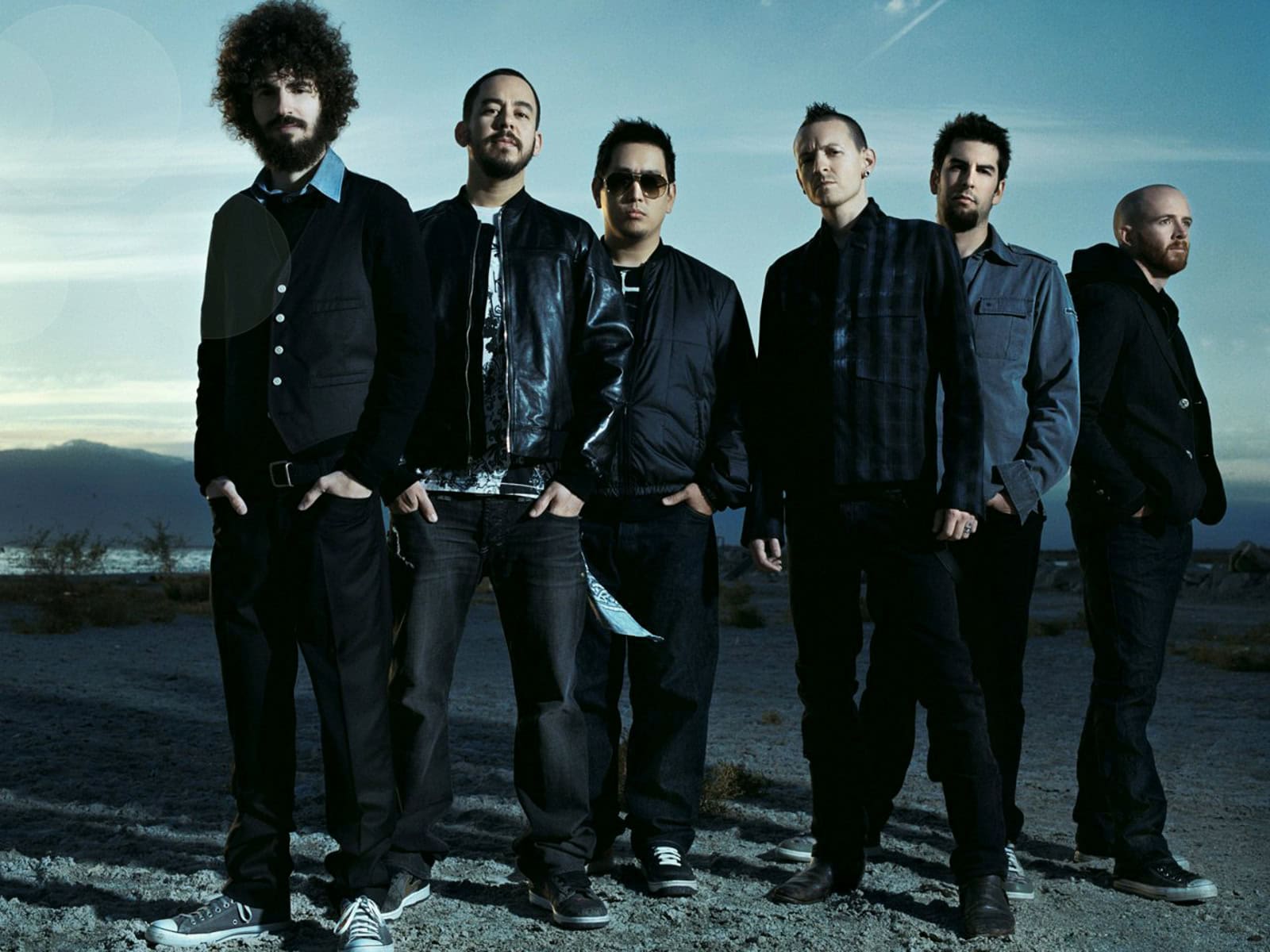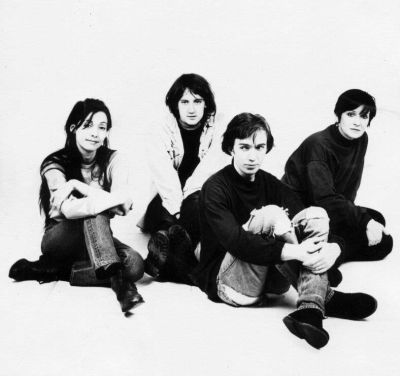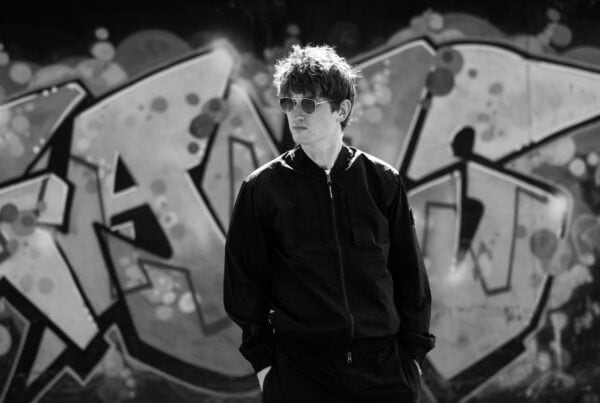
Artists often make some pretty questionable decisions stylistically. Whether it’s Korn’s decision to experiment with dubstep, or The Clash’s awful use of electronics on their last album, there are some choices that just make you go, “what were they thinking?” Sometimes though, artists make the incredibly bold decision to abandon one sound entirely, instead pushing forward with something completely new. Occasionally, it’s for the best. Other times, it’s the exact opposite. I already covered some previous examples in part 1 [link when up], but I’ve also got three more up my sleeve that offer some interesting food for thought, so let’s crack on.
David Bowie – “Stylistic Chameleon”
You could say this is sort of cheating, but David Bowie had a rich history of musical experimentation in his career, and to not cover it would just feel wrong. Obviously, what version of Bowie you’re hearing very much depends on the time period. His first album is a very interesting anomaly, featuring tracks like ‘Rubber Band’ that have a palpable music hall influence to them. It’s weird hearing Bowie doing the cheesiest of cheese, but his vocals are still very competent.
On the following three albums, he began to settle a little bit more into the sound he’s known for today, and the songs are better for it. Of course you have the classic ‘Space Oddity’ with those great orchestral arrangements, but also the thoroughly enjoyable piano pop-rock on tracks like ‘Changes’, or the blusier, proggier tone of tracks on ‘The Man Who Sold The World.’ I hadn’t heard the album before, and it was a real surprise, with tracks like ‘She Shook Me Cold’ being really good indeed, almost Iron Butterfly style.
Then, with the all time classic ‘Ziggy Stardust’, David fully entered into his glam-rock era, with some great results. Granted, the style might not personally be my cup of tea, but the quality of singles like ‘Life on Mars’ and ‘Starman’ is undeniable. Not to mention the production is super clean throughout, and the performances on track’s like ‘Star’, from David and the band, can be pretty exhilarating, very theatrical, and a lot of fun.
He continued with this sound on ‘Aladdin Sane’ and much of ‘Diamond Dogs’, spawning hit singles like ‘Rebel Rebel’, but following that, David would become enamoured with American funk, soul, and R&B, embracing it fully on ‘Young Americans.’ Unsurprisingly, the album was a hit in the US, despite sounding pretty cheesy today, allowing him to create a more “authentic” sounding Bowie record with influences from krautrock on ‘Station to Station’, with tracks like ‘Golden Years’ and ‘Stay’ proving that artistic freedom, more often than not with David, results in great stuff.
Little did we know, something big was on the horizon. Bowie was entering his Berlin era. These albums characterised some of the most artistically freeing of his career. Working alongside figures like Iggy Pop and Lou Reed, he produced a series of 3 incredibly ambitious, well-orchestrated rock albums, with the influences from soul, ambient and experimental music paying creative dividends on songs like ‘Sound and Vision’ or ‘Heroes.’ Unfortunately, the trilogy proved much more successful creatively than commercially, resulting in a pivot to a more general pop-rock sound in the 80s and early 90s. On the bright side, we did get tracks like ‘Let’s Dance’ and the killer ‘Labyrinth’ soundtrack out of it, so who am I to complain?
While it is true that David also stuck to his musical guns in the late 90s and early 2000s, 1993’s ‘Black Tie White Noise, while being mostly poppy in nature, and very enjoyable with tracks like the title track or ‘Night Flites’, would subtly forecast yet another musical detour: Bowie’s tinkering with dance music. Admittedly 1995’s ‘Outside’ was a lot more all over the place, with experiments in industrial, ambient, trip-hop, jazz-tinged electronica and hard rock, the following ‘Earthling’s fusion of hard, arena sized industrial rock, with DnB and rave music, at least in my opinion, came out amazing.
The only other major bit of experimentation to take note of was ‘Blackstar’, his final album, released two days before his untimely death. Bowie was reportedly inspired on this album by the current, modern wave of hip-hop, citing influence from Kendrick Lamar and Death Grips if you can believe that. In addition, he also recruited a stellar quartet of jazz musicians as his backing band. The results of this fusion are incredible. The mad, free-wheeling jazz-rock on tracks like ‘Tis a Pity’ and especially ‘Sue’ are utterly blood pumping, as well as the lighter ‘Dollar Days’ being remarkably beautiful. There’s even a more electronic, subtly danceable vignette on the closer that sounds brilliant.
But of course, the album was irrevocably shaped by the context surrounding it, making parts of the album not only beautiful, but also deeply tragic and dark. The title track is a prime example, going from eerie, slinking Jazz to an ethereal and sassy glam-stomp. Who could forget Lazarus too? Not only is the music supremely gut wrenching and dramatic, but David’s vocals, as they are throughout the album, are brimming with fragile emotion and pathos. It’s sure to bring tears to the most hardened man’s eyes.
Incidentally, a lot of the lyrics deal head on with death, adding to the album’s consistent sense of unease and deep tragedy, and making tracks like ‘Girl Loves Me’ even border on horror as he yelps “where the fuck did Monday go?”
So in terms of whether stylistic transitions were successful, it’s hard to say. He had successes and relative failures in the pop lane, especially later on, just as he did in his more “out-there” phases. However, given that his last and best album, and my other favourite from him, ‘Earthling’, were both examples of very successful experiments, as well as the Berlin trilogy and a few others, It’s easy to say his constant musical curiosity greatly worked to his benefit.
Underworld – Synth-Pop to Progressive House
Karl Hyde and Rick Smith are undisputed legends of the UK dance scene, writing some of the biggest and best loved hits in the style. What some may not know though, is that before breaking out chanting “lager, lager, lager” over a thundering kick drum, Underworld were very much on a similar musical shelf as Depeche Mode.
The first lineup of the band, also featuring Alifie Thomas, formed in the late 80s, heavily submerged in the sounds of synth pop and new wave on their first two albums, ‘Under The Radar’ and ‘Change The Weather.’ If I’m being totally honest, the songs themselves really aren’t bad. Songs like the title track and ‘I Need A Doctor’ off the first album showed the band still clearly had an ear for a catchy melody. It does also have a real sense of fun to it, despite just how cheesy the sounds they’re working with are. Then, when leaning into some more rock aesthetics on the follow up, I can quite comfortably say any of these songs would go down a storm at any 80s revival disco night. ‘Original Song’ is a bop, I don’t care what anyone says.
Moving into the 90s though, keyboard player Rick was growing tired of the sound they were playing with, instead becoming interested in a new, underground subculture: the Essex rave scene. After scraping together some gear, and recruiting highly talented DJ Darren Emmerson, they began work on crafting their own, homebrewed club bangers. Luckily for them (and us), singer Karl came along for the ride.
The end result of their labours, 1994’s ‘dubnobasswithmyheadman’ revolutionised British dance music. Tracks like ‘Cowgirl’, ‘Rez’ and ‘Dark Train’ are still dancefloor mainstays today, and for good reason. It wasn’t just any old rave album though, as the occasional flirting with trip-hop and downtempo music proved very successful too. Its unique fusion of thumping beats, eerie, yet euphoric and hooky melodies, as well as Karl’s new stream-of-consciousness lyrics, and previously established vocal prowess, struck a chord with the public. With that, ‘Underworld MKII’ was born, and they were a force to be reckoned with.
They continued to refine their sound further with albums like ‘Second Toughest In The Infants’ and ‘Beaucoup Fish’, taking all the previously established tenets of their big hits off the first record, and amping them up to great effect. The scale, majesty and danceability of tracks like ‘Jumbo’ or especially the near 17-minute epic ‘Juanita’, cannot be understated. Neither can the fantastically cathartic, booming energy of tracks like ‘Tin There’, ‘King of Snake’. ‘Moaner’, or of course, ‘Born Slippy .NUXX.’ It seemed like they were absolutely unstoppable. Most bands might be thrown into uncertainty if a key member left, in their case, Darren Emmerson, but somehow, the guys pulled off the bounceback of the century, releasing the ambient tinged ‘A Hundred Days Off’ in 2002.
I say bounceback of the century, and really want to mean it, because this album has ragers on ragers. ‘Little Speaker’, ‘Dinosaur Adventure 3D’, ‘Lutein’, the pure dose of transcendent happiness ‘Two Months Off’, cool more downtempo tracks like ‘Ballet Lane’, I could go on. The point is they definitively proved they weren’t going anywhere. It is true though that the next two albums weren’t quite as warmly received. ‘Oblivion With Bells’ I find to be the dullest in their catalogue, with only a few real standouts. Meanwhile, the chart-ready ‘Barking’, while much maligned by fans, I actually think has a lot more to offer than people want to believe. How can you not just instinctually begin boogieing down to ‘Always Loved a Film’, ‘Scribble’, or ‘Between Stars?’ I certainly find it hard not too.
After taking a six-year hiatus, the duo returned with handily their best album in nearly 15 years with ‘Barbara Barbara…’, and have been on a roll ever since. Their collaborative EP with Iggy Pop I found incredibly enjoyable, and the utterly ambitious DRIFT project, while leaving metric tons of music to sift through, resulted in serious bangers like ‘Listen To Their No’, ‘Border Country’, ‘Appleshine’ and ‘S T A R.’
Most recently, it seems like the boys are gearing up to release their next “proper album” in the near future. When that will be I don’t know, but if the quality of singles like ‘Fen Violet’ and ‘denver luna’ are anything to go by, they could be on for a serious late-career highlight. As for whether their transition to rave music was beneficial, despite a couple minor skirmishes, do you seriously want me to answer that question?
Linkin Park – Nu-Metal to Rock/Pop/Electronic
The end of 2000 seemed to spell doom for nu-metal. Yes, ‘Chocolate Starfish…’ became one of the fastest selling albums of all time in the US, and Slipknot’s ‘Iowa’ would release the next year, but otherwise, things weren’t looking good. Woodstock 99 was a PR disaster for the genre, a vast majority of the lesser bands faded into obscurity, Limp Bizkit, despite their success, would soon lose Wes Borland, and Korn were very close to pivoting away from the genre almost entirely. Then, against all odds, in the final minutes of extra time, along came newcomers Linkin Park. The release of their album ‘Hybrid Theory’ managed to seriously keep the genre afloat.
It had all the main characteristics of nu metal, the down-toned riffs, the rapping, the screaming, but this time was packaged with a much more chart acceptable sound shown on singles like ‘Papercut’, ‘Crawling’, and mega-hit power ballad ‘In The End.’ Even the heavier cuts from the album like ‘One Step Closer’, while still rocking pretty damn hard, didn’t even hold a candle to some other bands where brutality was concerned. Resultantly though, audiences ate it up.
The group continued on this wave of momentum by releasing ‘Meteora’ in 2003. Like its predecessor, it was more or less a true, blue nu-metal album, with that pop sensibility stil firmly in tact. Unsurprisingly, the album also birthed massive singles like ‘Faint’, and a second power ballad ‘Numb’, which also resulted in a pretty sick remix/collab/mashup with rapper Jay-Z. So it was after ‘Meteroa’, the world waited with baited breath. Just what would Linkin Park do next?
Safe to say the answer they got was sure to be a surprise. From the outside looking in, it would seem like Chester, Mike and the gang were becoming kind of tired of nu-metal. That’s understandable, it was 2003-4 after all. That being the case, the band set off on their long winding journey to becoming musical Jacks of all trades. By that I mean that nowadays, when looking back at the group’s catalogue, a large part of their remit seemed to be taking any form of rock, pop, or electronic they felt like at the time, fusing them together, and an album coming out the other end, a trend started with the release of ‘Minutes to Midnight.’
Truth be told, it’s probably the most straightforward record of the lot as far as later material’s concerned, as it sees the band flipping between either post punk and grunge bangers, inspirational alt-rock anthems, or pure pop balladry. There are a few tracks that don’t quite work, like the clap beat on ‘Bleed It Out’, as well as a lot of the poppier tracks just not really resonating with me, but a fair handful of tracks like ‘Given Up’, ‘Shadow of the Day’, ‘What I’ve Done’, ‘No More Sorrow’, and even the fairly melodramatic closer, are quite enjoyable. It’s not great, but it’s enjoyable.
I’m less enthusiastic about the follow up ‘A Thousand Suns’ though. I can give them credit in theory for being at the height of their ambition, but it does not bear out well. Stabs at every style imaginable, from pop, electronic, rock, and even bhangra, not to mention 6 interludes out of 15 tracks, and you end up with a total mess, and only a few halfway decent tracks to show for it.
The band regained their footing slightly with ‘LIVING THINGS’ and ‘The Hunting Party’, but neither were what I’d call noteworthy successes. The former I would almost say is what Korn’s ‘Path of Totality’ might’ve been if it wasn’t rubbish. The electronic rock fusion is a little tacky at times, but results in some undeniably enjoyable songs like ‘LOST IN THE ECHO’, ‘BURN IT DOWN’ and ‘VICTIMISED.’ It’s just a shame it loses steam in the last third with a string of ballads and slightly boring, linearly structured cuts.
‘The Hunting Party’ meanwhile is much more of a return to an straight metal sound, just with a certain grand flair. There are some pretty damn good tracks, like ‘Keys to the Kingdom’, ‘War’, ‘Wastelands’, ‘Rebellion’ and the closer, and it boasts a pretty impressive feature list, including Tom Morello, Daron Malakian, and even rap legend Rakim. It probably doesn’t have the same low lows as ‘LIVING THINGS’, but the highs aren’t quite as high either. It’s just mostly decent.
‘One More Light’ is a very tricky one. Obviously this album was shaped retrospectively by singer Chester Bennigton’s tragic suicide, and a lot of the lyrics illuminate his struggles, and deserve respect for that. Musically though, aside from the moving title track, and a few halfway decent pop-rock jams up front, this just isn’t for me.
I’m not just a mindless pop hater. As much as it’s odd to admit, I’ll always have a soft spot for the “year 6 disco” music I grew up on. Tinie Tempah, Taio Cruz, Avicci, Flo Rida, Owl City, all that stuff. Think ‘Now!’ around 75-83 or so. As much as that might be the case though, hearing Linkin Park do a full album’s worth a few years too late is a bit hard to stomach.
I suppose after all this you’d expect me to turn around and say the transition was a bad idea, and that they should’ve made six more nu-metal albums. Actually, no. I think the change was entirely necessary, the style they came up on being dead in the water and all, but the problem was I just don’t think they ever found one that really worked consistently well, which is a shame.
At the end of all this, I think the overall message is actually quite optimistic. Sure, a few of these transitions may have been slightly ill-conceived, but at least none of the one’s I’ve mentioned have totally derailed their careers.
Even in the cases of ones I’m less complimentary of, those bands and releases still retain massive fanbases, continuing to be successful today. So I think it’s not really a question of whether you transition, but, once you do, whether you’re any good at it. It seems obvious, but that really is all it comes down to. Anyway, even if the odd experiment fails, as the old saying goes, there’s no harm in trying, is there? Except in some cases (for god’s sake Korn, why…?)





